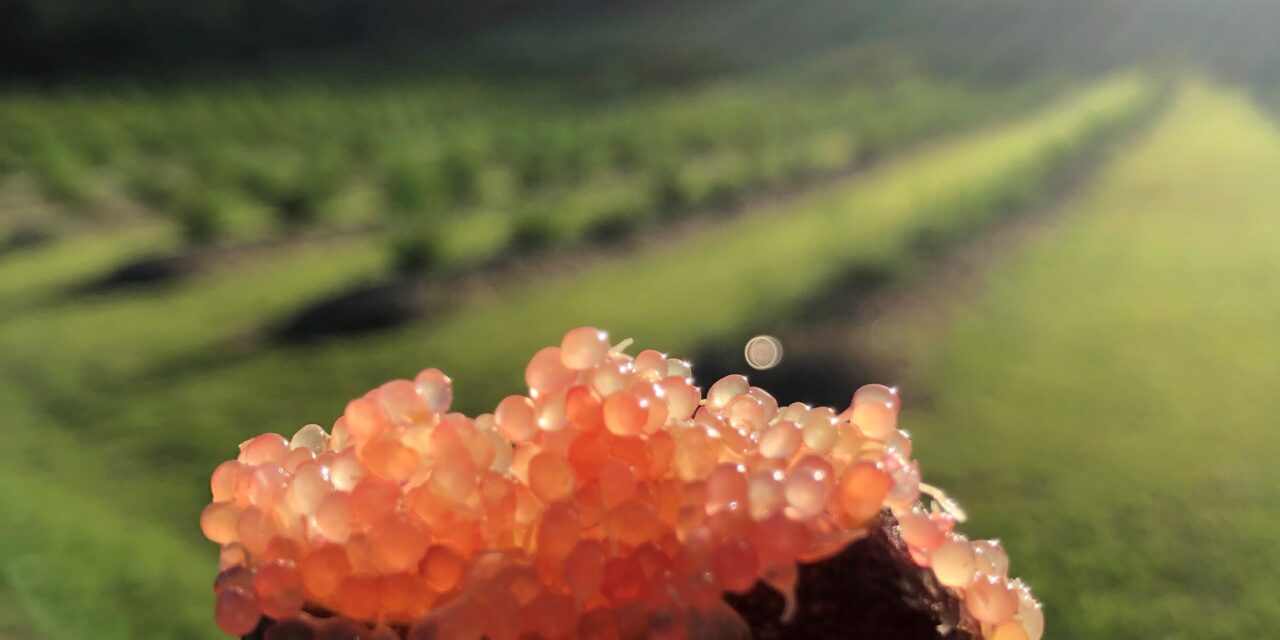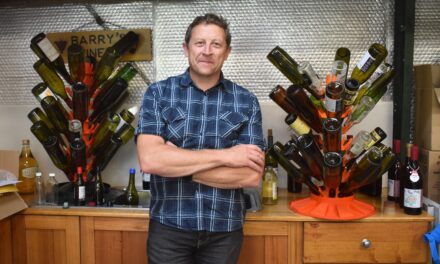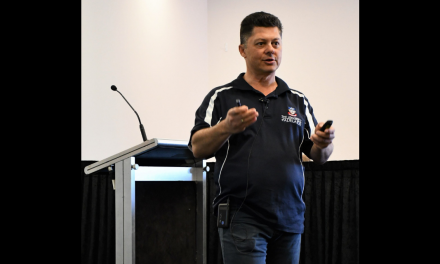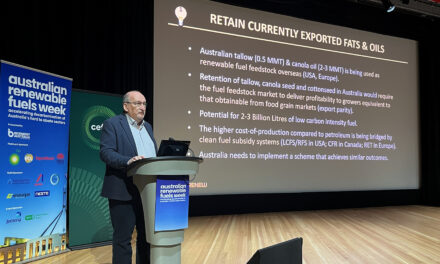In the subtropical rainforests of Queensland and NSW, a remarkable fruit has quietly thrived for thousands of years.
The Australian native finger lime, with its vibrant “citrus caviar” pearls and tangy flavour, was once known only to Indigenous communities.
Today, it’s captivating chefs and consumers around the world and considered one of Australia’s emerging industries.
But while global interest is growing, Australia’s leadership in finger lime production is no longer guaranteed.
Queensland grower Jade King, a 2022 Nuffield Scholar sponsored by AgriFutures Australia, set out to explore this challenge. Her international research journey uncovered both the immense potential and the urgent risks facing the native finger lime industry.
From Guatemala to California, her findings are shaping a new vision for how Australia can lead the commercialisation of its native foods.
Jade’s own journey began with a 350-tree orchard on the Sunshine Coast. Today, Green Valley Fingerlimes is home to more than 2000 trees. But her research revealed a surprising reality: the world’s largest producer of finger limes is not in Australia, but in Guatemala, where Prime Tropics manages more than 20,000 trees.
This discovery prompted Jade to investigate how Australia could reclaim its leadership.
Her study revealed a rapidly expanding global industry. In California, up to 30,000 trees are supported by research programs at UC-Riverside. Commercial operations are also emerging across Italy, France, Spain and Croatia. Yet many international producers lack varietal knowledge.
Some are even unknowingly growing Frustrime hybrids that don’t deliver the signature caviar-like pearls of true finger limes.
A key insight from Jade’s research was the importance of strong industry representation. She found that the success of the Australian macadamia industry was underpinned by the Australian Macadamia Society, which provided co-ordinated advocacy, research direction and provenance protection. In contrast, the finger lime industry was fragmented, with no dedicated voice.
Jade’s recommendations led to the formation of the Australian Native Finger lime Alliance in early 2024. Today, ANFA represents more than 34 growers and more than 50,000 trees across eastern Australia.
With a representative body now in place, attention turned to the research gaps limiting industry growth. King identified three key areas:
agronomic practices: despite being native to Australia, there is limited research on optimal growing conditions. Many producers rely on techniques adapted from other crops without scientific validation;
varietal standards: with more than 30 varieties available in nurseries, the lack of standardisation creates market confusion and inconsistent consumer experiences; and
market development: while the industry grew from $600,000 in 2017 to $3.1 million in 2020, export opportunities remain constrained by strict quarantine requirements and unco-ordinated marketing.
Jade also emphasised the importance of cultural recognition. Finger limes have been used by Indigenous Australians for thousands of years and ethical industry development must acknowledge this heritage.
Currently, only one finger lime cultivar has plant breeder’s rights, leaving most varieties vulnerable to misappropriation.
Jade’s work demonstrates how targeted research can catalyse industry transformation, establishing new bodies, guiding research priorities and unlocking market potential. The lessons extend beyond finger limes, offering insights for Australia’s broader native food sector, which is projected to double in value to $160 million by 2025.
AgriFutures’ investment in Jade’s scholarship exemplifies its commitment to growing the long-term prosperity of Australian rural industries. By enabling her international study, AgriFutures supported insights that are now shaping national strategy.
The Nuffield program, established in 1951, continues building capacity for producers, businesses and rural communities through its network of more than 500 Australian scholars and nearly 2000 worldwide.
Applications for AgriFutures-sponsored Nuffield Scholarships are open to Australian citizens or permanent residents aged 28 to 45 (with exceptions for exceptional candidates) engaged in farming, horticulture, fishing or associated industries.
As Jade’s journey shows, one scholarship can spark change across an entire industry and help secure Australia’s agricultural future.
Quest to get back on top








